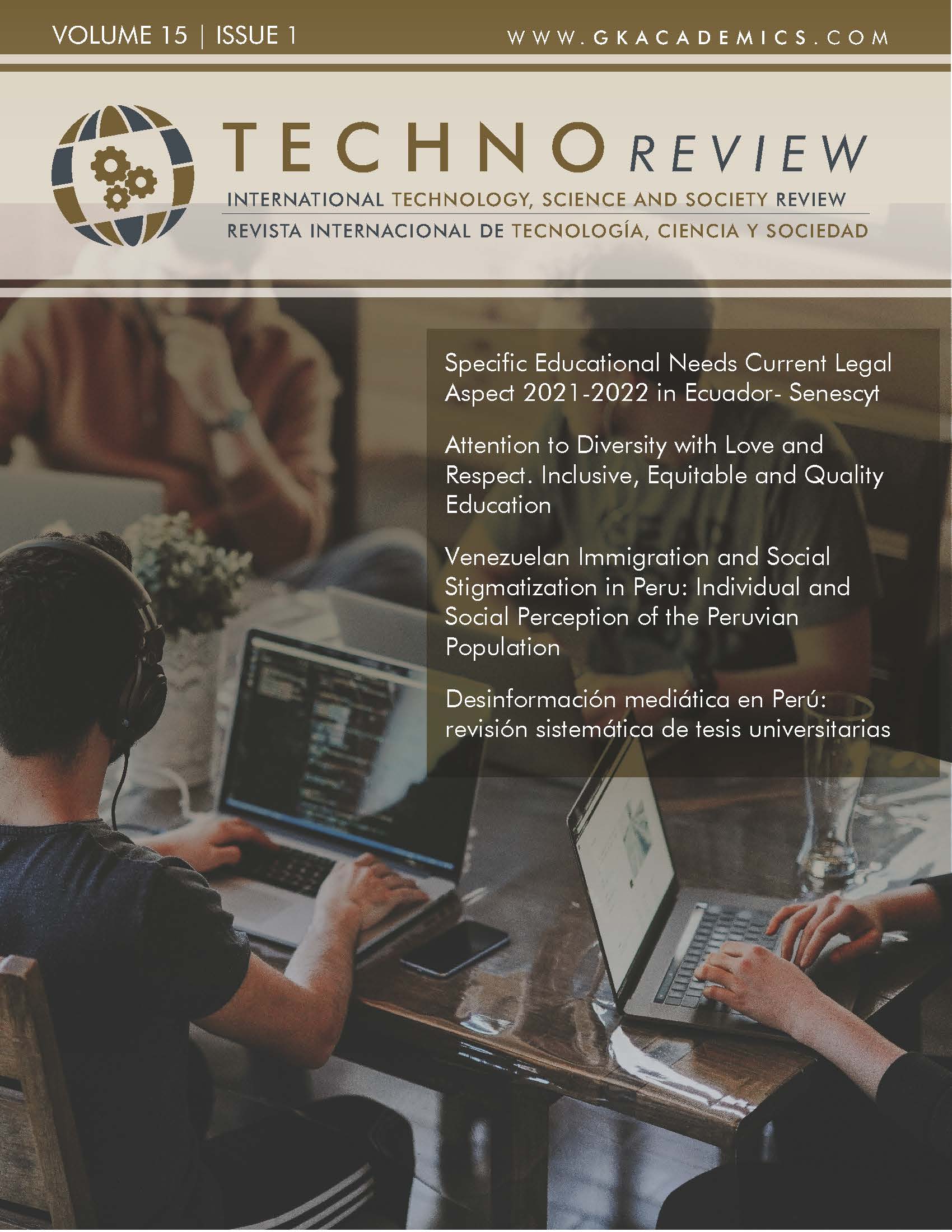How to evaluate the quality of a training to improve it?
DOI:
https://doi.org/10.37467/revtechno.v15.5057Keywords:
Evaluation, Quality, Tool, Teacher training, Professional development, University program, Continuous improvementAbstract
The objective of this research was to determine at what level a quality evaluation tool used by students in a university program of teacher training questions the elements that influence the quality of training and contributes to the process of continuous improvement. For this, an analysis process of evaluative tools was proposed as generally as possible so that it is transferability to various contexts. Finally, by putting it into practice this analysis process in the program, it was shown how it improves the understanding of the evaluation tool, promoting its development and the management of program.
References
Barbier, J. M. (1999). Prácticas de formación: evaluación y análisis. Ediciones Novedades Educativas.
Berthiaume, D., Lanarès, J., Jacqmot, C., Winer, L., y Rochat, J. M. (2011). L’évaluation des enseignements par les étudiants (EEE). Une stratégie de soutien au développement pédagogique des enseignants? Recherche et formation, (67), 53-72. https://journals.openedition.org/rechercheformation/1387
Clayson, D.E. (2020). A Comprehensive Critique of Student Evaluation of Teaching: Critical Perspectives on Validity, Reliability, and Impartiality (1st ed.). Routledge. https://doi.org/10.4324/9781003091462
De Ketele, J. M., Jorro, A., y Merhan, F. (2015). Mutations éducatives et engagement professionnel. De Boeck Supérieur.
Endrizzi, L. (2014). La qualité de l’enseignement: un engagement des établissements, avec les étudiants?. Dossier de veille de l’IFE, (93), 1-44. https://ens-lyon.hal.science/ensl-01565660/
Guillemette, F., Hurteau, M., y Houle, S. (2012). L'évaluation de programme axée sur le jugement crédible. Puq.
Hénard, F. (2010), Learning Our Lesson: Review of Quality Teaching in Higher Education. OECD Publishing, https://doi.org/10.1787/9789264079281-en
Jorro, A. (2011). L’évaluation, levier du développement professionnel? Recherche et formation, (68), 172-173. https://doi.org/10.4000/rechercheformation.1606
Lipton, M. F., Weeks, J. W. y De Los Reyes, A. (2016). Individual differences in fears of negative versus positive evaluation: Frequencies and clinical correlates. Personality and Individual Differences, 98, 193-198. https://doi.org/10.1016/j.paid.2016.03.072
Rege Colet, N. (2009). L'évaluation de l'enseignement au coeur des processus d'assurance qualité : l'arbre qui cache la forêt. En M. Romainville & C. Coggi (Ed.), L’évaluation de l’enseignement par les étudiants (p. 235-253). De Boeck Supérieur «Perspectives en éducation et formation».
Romainville, M. (2013). Évaluation et enseignement supérieur : un couple maudit, au bord du divorce? En: Marc Romainville (Ed.). Évaluation et enseignement supérieur (pp. 273-322). De Boeck Supérieur. https://doi.org/10.3917/dbu.romai.2013.01.0273
Sistema Nacional de Evaluación, Acreditación y Certificación (2016). Modelo de acreditación para programas de estudios de educación superior universitaria. SINEACE. www.sineace.gob.pe
Turpo-Gebera, O., Díaz-Zavala, R., Pérez-Postigo, G., Cuadros-Paz, L., & Esquivel Las Heras, J. (2023). Training of education researchers in Peru: contexts and challenges. TECHNO REVIEW. International Technology, Science and Society Review, 13(2), 1–10. https://doi.org/10.37467/revtechno.v13.4986
Wentzel, B. (2015). Internationalisation de la professionnalisation de l'enseignement: éléments d'analyse et de synthèse. En B. Wentzel, V. Lussi Borer & R. Malet (Dir.), Professionnalisation de l’enseignement (p. 67-108). Presses universitaires de Nancy. https://bit.ly/44ftzel
Downloads
Published
Issue
Section
License
Copyright (c) 2023 Silvia Verónica Valdivia Yábar , Ludgarda Apaza-Tapia , Ruth Mirihan Romero Huamani, Alex Gabino Mamani-Ortiz

This work is licensed under a Creative Commons Attribution-NoDerivatives 4.0 International License.
All articles are published under an Attribution-NoDerivatives 4.0 International (CC BY-ND 4.0) license. Authors retain copyright over their work.

